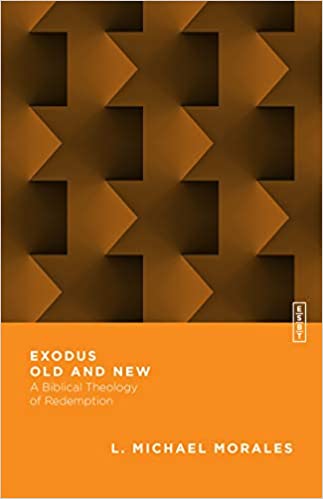A Brief Book Summary from Books at a Glance
by Mark Baker
About the Author
L. Michael Morales is professor of biblical studies at Greenville Presbyterian Theological Seminary in Taylors, South Carolina. He has written several books such as Who Shall Ascend the Mountain of the Lord and The Tabernacle Pre-Figured (back cover).
Overview of the Book
This book traces the theme of the exodus throughout the Bible’s story of redemption. The exodus is foreshadowed in Adam and Eve’s exile out of the garden. The first exodus occurs as God delivers Israel from Egypt (the land of death) and leads them to the Promised Land (the land of life). This exodus motif is then powerfully appropriated to Jesus’s death and resurrection and the new life that Jesus gives to believers through the giving of the Spirit.
Table of Contents
Introduction
1 Exile Before Exodus
Part 1: The Historical Exodus out of Egypt
2 The Exodus Prefigured
3 Glory to God in the Highest!
4 Slaying the Sea Dragon
5 The Blood of the Passover Lamb
6 Moses the Servant of Yahweh
7 The Cultic Exodus
Part 2: The Prophesied Second Exodus
8 The Pattern of Sacred History
9 Greater than the First Exodus
10 The Servant of the Second Exodus
11 Who IS the Servant of Yahweh?
Part 3: The New Exodus of Jesus the Messiah
12 The New Exodus in the Gospel of John
13 The Spirit of the New Exodus
14 The Only Hope
Summary
Introduction
He might seem like an odd source, but Dante Alighieri of the Italian Renaissance understood the significance of the exodus for biblical theology. Referencing Psalm 114, “Dante wrote that while historically the verse refers to the children of Israel’s exit out of Egypt under Moses, this exodus prefigured the redemption accomplished by Jesus Christ” (1). Dante actually included echoes of the exodus as a macro-theme in his Divine Comedy. The Inferno refers to the exodus itself, Purgatorio symbolizes the wilderness wanderings (focusing specifically on Mount Sinai), and Paradiso echoes Israel’s entrance into the Promised Land. What Dante illustrates in the Comedia, literary critic Northrop Frye states in prose: The exodus “is the only thing that ever happens” in the Bible. The exodus is Israel’s story, and as Christians, it is our story too. That’s what this book is about.
Chapter 1: Exile Before Exodus
The fall of Adam and Eve in Genesis 3 is depicted as an exile from Eden. As sin spreads to all humanity, the problem of exile continues in the generation of Noah, with the tower of Babel, and into the lives of the patriarchs with Joseph’s exile in Egypt. “Ultimately, a restoration of the nations to God will require an exodus, for the exodus pattern is nothing less than the reversal of exile, nothing less than resurrection from the dead” (16). . . .
[To continue reading this summary, please see below....]The remainder of this article is premium content. Become a member to continue reading.
Already have an account? Sign In
